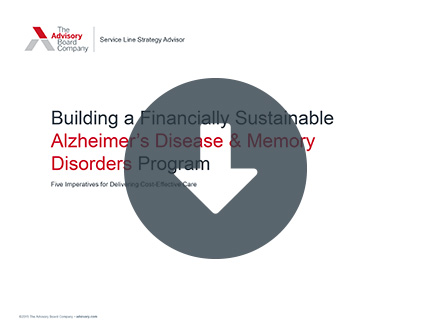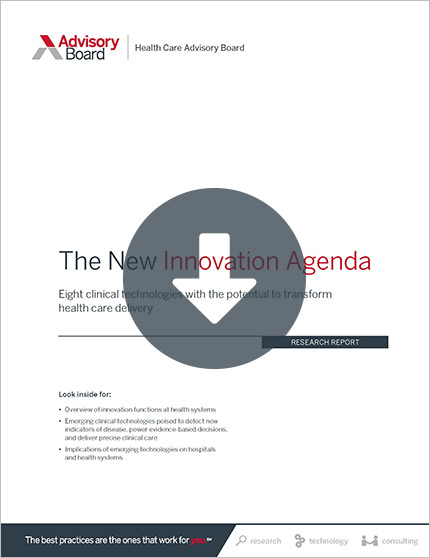Auto logout in seconds.
Continue LogoutThe direct-to-consumer genetic testing market "is a regulatory Wild West," Laura Hercher, a genetic counselor, writes in a New York Times opinion piece. But as 32-year-old New York City resident Matt Fender learned firsthand, genetic tests from different companies can show conflicting results, leaving patients "to grapple with the discordant results" on their own, Hercher writes.
What providers should know about genetic testing and other new clinical innovations
Would he get Alzheimer's?
Last December, Fender submitted his raw 23andMe data to Promethease, a DNA search engine that looks for variants that have been noted in medical literature. Fender had used the service in 2016 but decided to run his data again when Promethease reached out offering to run the data at no-cost if users agreed to them using the data for future research.
To his surprise, the latest data showed Fender had the PSEN1 mutation, which is associated with early onset Alzheimer's. The mutation was "100% penetrant," which means everyone who has the variant gets the disease, Hercher writes.
Fender's first move was to reach out to his doctor, who referred him to a geneticist. However, the geneticist wouldn't see Fender, since he had no symptoms or family history of the disease. Fender faced a similar dilemma when looking for more robust genetic testing as insurance was unlikely to cover the tests and consultations without a family history, Hercher writes.
"It was like a chicken-and-egg thing," Fender said. "I needed a medical test to prove to them that it was real, but I couldn't get a medical test until I could prove to them that it was real."
Then, Fender came across a deal: Ancestry.com was offering a discount on its genetic test, so Fender bought it—to serve as a second opinion.
Five weeks later, Fender's results were ready, and he entered his raw data from Ancestry into Promethease.
Then came something surprising: Promethease, using the data from Ancestry, now said he didn't have PSEN1.
"At first Fender tried to just believe that the Ancestry results were true and that the 23andMe finding was a mistake," Hercher writes. "But he found the lingering doubts disquieting, and eventually persuaded his doctor to order a clinical test of the PSEN1 gene. It was negative."
What consumers should know
Experts say story's like Fender's are rare, but are likely to grow as direct-to-consumer genetic testing becomes more popular.
Jill Goldman, a genetic counselor specializing in dementia at the Taub Institute at Columbia University Medical Center, said, "People are going to need help," she said. "And we are not ready to handle it."
But Stacey Detweiler, a medical affairs associate at 23andMe, said patients should always bear in mind that the genetic tests are imperfect. "I always think it is important to point out that a 99.9% accuracy can still mean errors," she said. "Even if every variant included in our chip was validated for an accuracy of 99.9% (which they are not), that still would mean potential for about 600 errors in the 600,000 variants."
As Hercher writes, "the number of mistakes can be as high as 600 per customer."
Different companies also use different algorithms to determine their test results. These algorithms can change based on the size and diversity of a company's database population.
And even with accurate results, consumers can be confused about their health risks, experts say. For instance, results that say a person has a risk of getting a disease doesn't mean they will get it. Detweiler said consumers should always consult a physician before taking any action based on their test results.
One key reason, according to Hercher, is that the information patients get isn't always actionable. When Fender first consulted his doctor about the finding he wrote, "I know this is an area of medicine that is maybe half-baked and possibly annoying to you."
In response, his doctor said, "It's not about the issue being half-baked ... but what the heck do we do about it, once we know, other than create high anxiety" (Hercher, New York Times, 9/15; Marcus, Wall Street Journal, 9/14).
What providers should know about genetic testing and other new clinical innovations
Hospitals and health systems need to prepare for a new wave of clinical innovation, especially as leaders read about the promise of patient-generated data, artificial intelligence, and precision medicine. But which emerging innovations have the potential to truly transform health care delivery?
This research report explores the clinical technology pipeline to help health care leaders become more conversant in the major vectors of innovation, leading applications of new technologies, and the business implications for established providers.
Don't miss out on the latest Advisory Board insights
Create your free account to access 1 resource, including the latest research and webinars.
Want access without creating an account?
You have 1 free members-only resource remaining this month.
1 free members-only resources remaining
1 free members-only resources remaining
You've reached your limit of free insights
Become a member to access all of Advisory Board's resources, events, and experts
Never miss out on the latest innovative health care content tailored to you.
Benefits include:
You've reached your limit of free insights
Become a member to access all of Advisory Board's resources, events, and experts
Never miss out on the latest innovative health care content tailored to you.
Benefits include:
This content is available through your Curated Research partnership with Advisory Board. Click on ‘view this resource’ to read the full piece
Email ask@advisory.com to learn more
Click on ‘Become a Member’ to learn about the benefits of a Full-Access partnership with Advisory Board
Never miss out on the latest innovative health care content tailored to you.
Benefits Include:
This is for members only. Learn more.
Click on ‘Become a Member’ to learn about the benefits of a Full-Access partnership with Advisory Board
Never miss out on the latest innovative health care content tailored to you.



